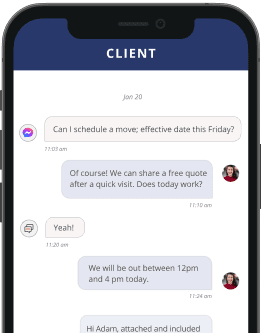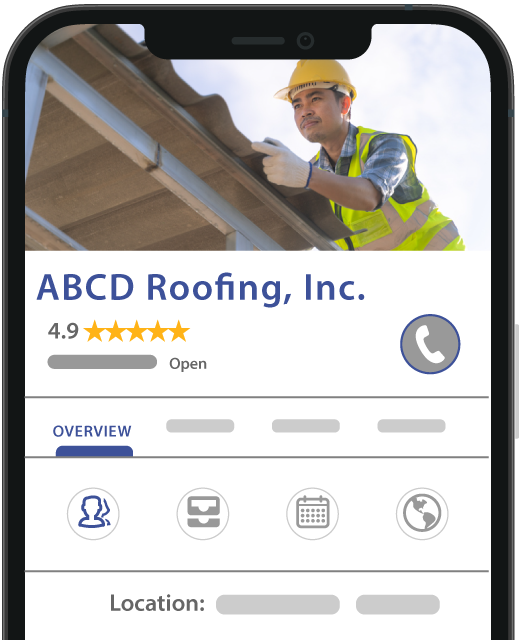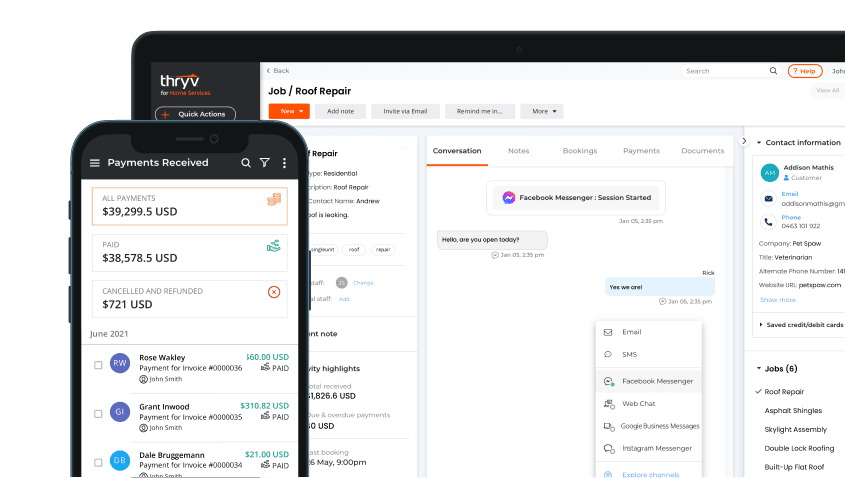If you want a career that’s always in demand, learning how to become a certified electrician is a smart place to start. Skilled electricians are needed in every community, and the path to becoming one is both rewarding and practical. But before you can start wiring homes or servicing commercial projects, you’ll need the right credentials. That means getting your electrician certification and applying for an electrician license.
In this guide, we’ll cover why certifications matter, what steps are involved, and how requirements vary by state. We’ll also walk you through how to grow your career once you’re a certified electrician, including how the right tools and software can help you build a thriving business.
Why having electrician certification matters
Getting your electrician certification is more than just a box to check. It’s proof that you have the training, safety knowledge, and professional accountability to handle electrical work the right way. Since electricians are trusted with systems that power homes, businesses, and entire communities, customers and employers need assurance that you’re qualified.
Here’s why earning your electrician license is such a big deal:
- Legal protection: Most states require a license before you can legally take on electrical work, especially for jobs that involve new construction or exceed a certain dollar amount. Working without one could mean fines, penalties, or even being barred from future projects.
- Customer trust: A certified electrician shows your competence and reliability. Homeowners and businesses feel more comfortable hiring someone who’s proven they meet state standards for safety and quality.
- More opportunities: With the right credentials, you can bid on larger projects, apply for better-paying jobs, or branch out into specialized fields like solar or commercial wiring.
- Business growth: Once you’re licensed, you can explore starting an electrician business. That means not only doing the work, but also managing jobs, customers, and growth on your own terms.
An electrician certification sets the foundation for a long-term career. Whether you want to climb the ladder at an established company or launch your own business, being licensed gives you credibility and flexibility.
5 Steps to becoming a licensed electrician
While every state has its own process, most follow a similar path. Here’s what you can expect when trying to get your electrician licensing:
1. Meet education requirements
Start with a high school diploma or GED. Courses in math, science, and shop are especially helpful. Many aspiring electricians then attend a trade school or technical program where they learn the basics of wiring, safety, and electrical systems.
2. Complete an apprenticeship
Apprenticeships usually last four to five years. You’ll earn a paycheck while logging thousands of hours of on-the-job training under the supervision of a licensed electrician. Most apprenticeships also include classroom instruction, covering everything from electrical theory to building codes.
3. Take your licensing exam
Once you’ve completed your apprenticeship hours, you’ll need to pass a state exam. This usually includes:
- A trade knowledge test (covering wiring, safety codes, and installation practices).
- A business or law exam (covering contracts, taxes, and regulations).
4. Apply for your electrician license
Along with your exam results, states often ask for:
- Proof of apprenticeship or work experience.
- Background checks.
- Application fees (ranging from $50 to $500).
- Proof of liability coverage, since insurance for electricians is required in most states.
5. Maintain your license
Most states require license renewals every 1–3 years. You may need continuing education courses to stay up to date with changes in electrical codes and safety practices.
Electrician license requirements by state
Licensing boards vary widely. Some states license electricians at the state level (like California, Texas, or Florida), while others leave it to local jurisdictions (like Illinois or New York).
To find the exact rules where you live, visit your state’s licensing authority. Many provide online applications, exam prep resources, and details about fees.
Here’s where to look for information in each state:
Alabama
Alabama Electrical Contractors Board
https://aecb.alabama.gov
Alaska
Division of Corporations, Business & Professional Licensing
https://www.commerce.alaska.gov/web/cbpl/ProfessionalLicensing/Electricians.aspx
Arizona
Arizona Registrar of Contractors
https://roc.az.gov/
Arkansas
AR Dept. of Labor & Licensing — Board of Electrical Examiners
https://labor.arkansas.gov/labor/code-enforcement/electrical-inspection-and-licensing/
California
Contractors State License Board
https://www.cslb.ca.gov/
Colorado
Colorado State Electrical Board
https://dpo.colorado.gov/Electrical
Connecticut
CT Dept. of Consumer Protection
https://portal.ct.gov/dcp/license-services-division/all-license-applications/electrical-license
Delaware
Delaware Board of Electrical Examiners
https://dpr.delaware.gov/boards/electrician/
Florida
FL Dept. of Business & Professional Regulation
https://www2.myfloridalicense.com/electrical-contractors
Georgia
Georgia State Board of Electrical Contractors
https://sos.ga.gov/georgia-state-board-electrical-contractors
Hawaii
HI Board of Electricians and Plumbers
https://cca.hawaii.gov/pvl/boards/electrician/
Idaho
Idaho Division of Occupational & Professional Licenses — Electrical
https://dopl.idaho.gov/ele/
Illinois
Local jurisdictions (e.g., Chicago)
Varies by city/county
Indiana
Local jurisdictions
Varies by city/county
Iowa
Iowa Electrical Examining Board
https://iowaelectrical.gov/
Kansas
Local jurisdictions
Varies by city/county
Kentucky
KY Dept. of Housing, Buildings & Construction — Electrical
https://dhbc.ky.gov/
Louisiana
Louisiana State Licensing Board for Contractors
https://www.lslbc.louisiana.gov/
Maine
Maine Electricians’ Examining Board
https://www.maine.gov/pfr/professionallicensing/professions/electricians
Maryland
Maryland Department of Labor
https://www.labor.maryland.gov/license/elec/elecreq.shtml
Massachusetts
MA Board of State Examiners of Electricians
https://www.mass.gov/orgs/board-of-state-examiners-of-electricians
Michigan
Michigan LARA — Electrical Division
https://www.michigan.gov/lara/bureau-list/bcc/sections/licensing-section/exam-lic/electrical-examination-licensing-registration-application-information
Minnesota
Minnesota Board of Electricity
https://www.dli.mn.gov/business/electrical-contractors/
Mississippi
Mississippi State Board of Contractors
https://www.msboc.us/electrical-contractors/
Missouri
Local jurisdictions (e.g., St. Louis, Kansas City)
Varies by city/county
Montana
Montana State Electrical Board
https://boards.bsd.dli.mt.gov/electrical/
Nebraska
Nebraska State Electrical Division
https://electrical.nebraska.gov/
Nevada
Nevada State Contractors Board
https://www.nvcontractorsboard.com/
New Hampshire
NH Office of Professional Licensure and Certification
https://www.oplc.nh.gov/applications-electricians
New Jersey
NJ Board of Examiners of Electrical Contractors
https://www.njconsumeraffairs.gov/elec
New Mexico
NM Electrical Bureau
https://www.rld.nm.gov/construction-industries/find-a-bureau/bureaus/electrical-bureau/
New York
Local jurisdictions (e.g., NYC)
Varies by city/county
North Carolina
NC State Board of Examiners of Electrical Contractors
https://www.ncbeec.org/
North Dakota
North Dakota State Electrical Board
https://www.ndseb.com/
Ohio
Ohio Construction Industry Licensing Board
https://com.ohio.gov/divisions-and-programs/industrial-compliance/boards/ohio-construction-industry-licensing-board/contractors-and-contracting-companies/contractors-contracting-companies
Oklahoma
Oklahoma Construction Industries Board — Electrical
https://www.ok.gov/cib/Trade_Licenses/Electrical/
Oregon
Oregon Building Codes Division — Electrical Licensing
https://www.oregon.gov/bcd/licensing/Pages/index.aspx
Pennsylvania
Local jurisdictions
Varies by city/county
Rhode Island
RI Dept. of Labor & Training — Electricians
https://dlt.ri.gov/regulation-and-safety
South Carolina
SC Contractor’s Licensing Board
https://llr.sc.gov/clb/
South Dakota
South Dakota Electrical Commission
https://dlr.sd.gov/electrical/
Tennessee
Tennessee Board for Licensing Contractors
https://www.tn.gov/commerce/regboards/contractors
Texas
Texas Department of Licensing and Regulation
https://www.tdlr.texas.gov/electricians
Utah
Utah Division of Occupational & Professional Licensing
https://dopl.utah.gov/el/
Vermont
VT Electrical Licensing — Division of Fire Safety
https://firesafety.vermont.gov/licensing/electrical
Virginia
Virginia Board for Contractors
https://www.dpor.virginia.gov/Boards/Contractors
Washington
WA Dept. of Labor & Industries — Electrical Program
https://www.lni.wa.gov/licensing-permits/electrical/
West Virginia
WV State Fire Marshal — Licensing
https://firemarshal.wv.gov/fm-divisions/regulatory-licensing
Wisconsin
WI Dept. of Safety & Professional Services — Electrical
https://dsps.wi.gov/Pages/Professions/ElectricianRegistered
Wyoming
Local jurisdictions
Varies by city/county
How to equip yourself for success
Once you’ve earned your credentials, your journey as a certified electrician is just beginning. Success in the trade depends not only on your skills but also on the tools, business setup, and strategies you put in place to stand out from competitors and keep customers coming back.
Business setup
If you’re starting an electrician business, you’ll need more than technical know-how. Register your business with your state, apply for a business license, and make sure you have the right insurance for electricians. General liability and workers’ compensation coverage are often required before you can legally take on bigger projects. Creating standard contracts also protects you from disputes and ensures customers know what to expect.
Essential gear
Your day-to-day work will be much smoother when you invest in reliable tools for electricians. A basic kit should include wire strippers, pliers, voltage testers, multimeters, conduit benders, and drill drivers. Don’t overlook personal safety gear like insulated gloves, protective goggles, and sturdy work boots. High-quality tools last longer and make jobs faster, while proper safety equipment helps you stay compliant with OSHA standards and reduces risks on the job.
Pricing clarity
Setting an electrician pricing structure is essential for both your business and your customers. Transparent pricing helps you avoid undercharging and ensures customers know exactly what they’re paying for. Break down your costs into labor, materials, and overhead, and consider offering both flat-rate pricing for common jobs and hourly rates for custom work. Clear estimates make customers more likely to approve jobs quickly and trust your professionalism.
Marketing strategy
Even the best electricians won’t grow without visibility. Superior marketing for electricians includes building a professional website, keeping your Google Business Profile updated, encouraging happy customers to leave reviews, and staying active on social media. Paid ads and lead-generation services can also help you reach new audiences, but the most important step is consistency — customers are more likely to hire you when they see you’re active, credible, and trusted online.
Setting yourself up for success means looking beyond certification. With the right tools, protection, marketing, and pricing strategy, you’ll be ready to take your license and build a business that grows steadily for years to come.
Running your electrical business smarter with the right software
Once you’re a licensed electrician, the real challenge begins: keeping jobs organized, getting paid on time, and building a steady flow of customers. That’s where the right digital tools make all the difference.
Thryv®’s software was built to help small businesses market, sell, and grow. With Thryv’s software for electricians, you’ll spend less time buried in paperwork and more time doing the work that drives revenue.
Here’s how the right system keeps your business on track:
Simplify scheduling: Let customers book online and sync jobs with your calendar so you never miss an appointment.
Send professional estimates and invoices: Create estimates in minutes, convert them to invoices when the job is complete, and add online payment options so you get paid faster.
Manage customer relationships: Store customer details, job history, and notes in one place, making it easier to deliver personalized service and win repeat business.
Automate reminders: Reduce no-shows with appointment confirmations and reminders that go out automatically.
Get discovered online: Thryv helps manage your Google Business Profile, online listings, and reviews so new customers can find you and trust you.
Centralize communication: Keep texts, emails, and social messages in one inbox so nothing slips through the cracks.
Stay organized day-to-day: From scheduling and invoicing to payments and customer communication, Thryv streamlines the moving parts of your business so you can focus on your trade.
In short, once you’ve earned your electrician license, Thryv becomes one of the most powerful tools you can have for building a business that lasts.



